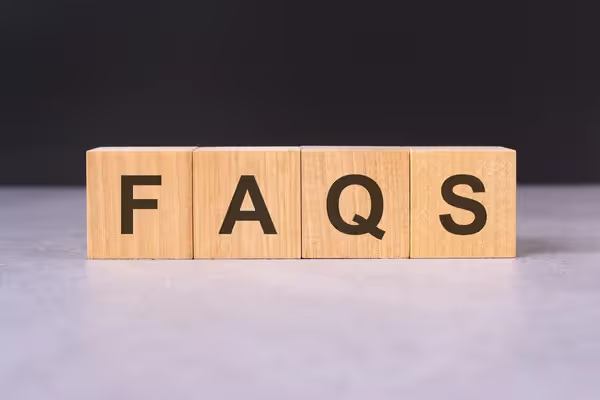In the healthcare world driven by digital dialogue, social media listening has become indispensable. In the pharmaceutical sector, monitoring online conversations provides real-time insight into patient experiences, healthcare professional (HCP) sentiment, and the broader ecosystem. This guide explores what pharma social media listening means, how it supports healthcare monitoring, shares pharma listening examples, dives into major challenges, and ends with a look at the best tools — including how GetPhyllo’s suite of APIs can empower these efforts.
What is Pharma Social Media Listening?
Social media listening refers to tracking, analysing, and interpreting conversations happening online across platforms, forums, blogs, and review sites. In the pharmaceutical context, it means applying this process to topics such as drug treatments, disease-area discussions, patient journeys, and HCP commentary.
While social media monitoring focuses on what people are saying, social listening focuses on why they are saying it. Monitoring provides raw metrics and mentions; listening extracts insights, sentiment, and trends that drive better decision-making.
In pharma, social listening plays a critical role in healthcare monitoring. It enables brands to understand patient sentiment, track treatment experiences, identify unmet needs, and even detect potential safety signals. With billions of social conversations happening daily, listening allows healthcare companies to stay closer to patient voices, anticipate risks, and improve brand trust.
Four-Step Activity of Social Listening for Pharma Industries
Based on the definition, we can say that the social media listening for pharma industries involve a 4-step activity as follows-
Step 1-Monitoring
The first step involves monitoring diverse social media platforms to check the conversations of patients, doctors, and other healthcare professionals around the relevant keywords/topics, your brand, and competitor pharmaceutical companies.
Step 2-Understanding
In the second step, marketers understand the sentiments of patients on social media behind their conversations.
Step 3-Analyzing
Now, digital marketers associated with pharmacy social listening analyze the conversations to identify the latest trends for bringing growth opportunities and improvement.
Step 4-Taking the Right Action
Now, online marketers take the necessary actions based on their drawn conclusions from the previous steps.
Note-
Social media listening for pharmacy industries involves a proactive activity. It is done to develop a few effective and long-term solutions based on the insights collected on macro levels.
Key Use Cases of Pharma Social Media Listening
Pharma social listening offers a wide array of use cases, from improving patient care to guiding marketing and safety initiatives. Let’s look at how it’s applied across three major areas.
Patient-Centric Insights
Patients frequently discuss symptoms, side effects, and treatment experiences online. These digital conversations are valuable for identifying real-world insights beyond clinical data. Social listening helps pharma companies:
- Identify recurring symptoms and side effects early.
- Detect potential adverse events or safety concerns.
- Map treatment pathways and patient experiences.
- Uncover unmet needs or emotional pain points.
For example, listening to patient communities for chronic illness discussions can help identify frustrations with treatment regimens, side effects, or accessibility issues—insights that guide better communication and support programs.
HCP, KOL, and Influencer Engagement
Healthcare professionals and key opinion leaders often shape perceptions about therapies and treatments. Monitoring their online discussions offers valuable context on medical trends and professional sentiment.
Social listening enables pharma brands to:
- Identify active HCPs or digital opinion leaders (DOLs) discussing their therapeutic area.
- Track sentiment and response to new therapies or research data.
- Map competitor mentions and discussion patterns.
- Discover opportunities for collaborations or expert partnerships.
For instance, a pharmaceutical company could detect increased online discussion among physicians around a competitor’s new product launch, helping the brand refine its communication strategy and response.
Brand and Market Intelligence
Social media listening isn’t only about patient or HCP conversations. It’s also a powerful source of brand intelligence. Pharma marketers use it to assess public sentiment, track campaigns, and benchmark competitors.
Through social listening, pharma companies can:
- Measure brand reputation and share of voice.
- Detect crises early and mitigate misinformation.
- Monitor discussions on drug pricing, access, and policies.
- Identify emerging trends in disease awareness or therapy usage.
By actively tracking how their brand and therapies are perceived, companies can take timely corrective measures, protect reputation, and better align communication strategies with public expectations.
Read more:
Free Social Media Screening Tips: How You Can Enhance Candidate Evaluation
The Impact of Remote Work on Social Media Behavior
Unmasking Social Media Burner Accounts: What They Are and Why They Matter
Challenges in Pharma Social Media Listening
Despite its immense value, social listening in pharma presents unique challenges related to compliance, privacy, and data quality.
Compliance and Data Privacy
Pharma operates in one of the most regulated industries, and listening must comply with strict data privacy and pharmacovigilance laws. Companies must ensure:
- Sensitive patient data isn’t collected or misused.
- Adverse events mentioned in social posts are reported according to regulations.
- Global data rules (like GDPR and HIPAA) are followed.
- Ethical boundaries are maintained when interpreting patient posts.
Data Volume and Relevance
With massive social data, separating signal from noise is difficult. Challenges include:
- Filtering irrelevant posts and spam.
- Handling multilingual, cross-platform data.
- Interpreting medical jargon and context accurately.
- Maintaining sentiment accuracy for complex discussions.
Automated tools often struggle with sarcasm, mixed sentiment, or technical terminology, which means human oversight remains vital.
Integration into Business Processes
Insights are only valuable when they drive decisions. Pharma companies often face hurdles in integrating listening data into operational workflows. Issues include:
- Departmental silos between marketing, safety, and medical affairs.
- Lack of structured frameworks for acting on insights.
- Disconnection between analytics tools and compliance systems.
Creating a cross-functional framework ensures that insights flow seamlessly from social data to actionable strategies.
Best Tools and Features for Pharma Social Listening
Selecting the right tool is essential for compliance, accuracy, and operational efficiency. The best tools combine AI-driven analysis with healthcare-specific data governance.
Essential Features to Look For
When evaluating social listening tools for pharmaceutical applications, look for:
- Multi-channel coverage (forums, review sites, HCP platforms, etc.)
- Healthcare lexicon support for diseases, drugs, and symptoms.
- Adverse event flagging and alerts.
- Sentiment and topic analysis with medical context.
- Influencer and HCP identification.
- Data privacy and compliance workflows.
- Custom dashboards and API integrations.
Comparison of Common Tools
Each organization must choose based on its specific therapeutic focus, compliance requirements, and integration needs.
Best Practices for Pharma Social Listening
Pharma brands can maximise listening effectiveness through structured processes and ethical frameworks.
Define Clear Objectives
Start by outlining what the listening program aims to achieve. Objectives can include tracking brand sentiment, mapping patient journeys, or detecting adverse events. Clear goals shape keyword selection, platforms, and reporting frequency.
Build a Cross-Functional Framework
Social listening affects multiple departments. Create alignment between marketing, pharmacovigilance, and medical affairs to ensure all data flows into a unified system. Define clear escalation paths for flagged content or compliance issues.
Combine Quantitative and Qualitative Insights
AI-driven tools provide data volume, but qualitative analysis brings depth. Combining both ensures more accurate insights into patient emotion, tone, and context.
Prioritise Compliance and Ethics
Always anonymize patient data, follow jurisdictional privacy laws, and route potential safety data through approved pharmacovigilance workflows. Transparency and respect for user privacy are non-negotiable.
Turn Insights into Action
Transform findings into real strategies. For example:
- Adjust marketing campaigns based on emerging sentiment.
- Use patient insights to refine educational programs.
- Develop community engagement or awareness campaigns.
Continuous Optimisation
Language and platforms evolve. Regularly update keyword lists, refine sentiment models, and assess outcomes against objectives.
Pharma Listening Examples
Pharma social listening is already reshaping healthcare analytics and patient engagement.
- Patient-Reported Outcomes: A liver disease treatment study revealed new quality-of-life impacts through patient discussions that weren’t captured in trials. These insights led to better educational resources.
- HCP Discussion Mapping: Monitoring conversations among neurologists helped one brand discover growing off-label interest in a therapy, guiding its communication approach.
- Brand Trust and Crisis Response: During pricing-related controversies, pharma brands used social listening to detect negative sentiment early and communicate transparently about affordability programs.
Introducing GetPhyllo’s Social Listening Product
GetPhyllo offers an advanced Social Listening API designed for brands and enterprises that require deep, compliant, and real-time social insights.
It empowers teams to:
- Track relevant social and community discussions in real time.
- Analyse trends across patients, HCPs, and influencers.
- Identify sentiment shifts and brand mentions in healthcare contexts.
- Integrate listening insights with safety or influencer management workflows.
Pharma companies can enhance compliance and decision-making by connecting GetPhyllo’s Social Listening API with:
- Social Screening — for verifying influencers or user profiles.
- Social Media Intelligence — for visualising aggregated listening data.
- Influencer Vetting for Brand Safety — for ensuring collaborations meet regulatory and reputational standards.
Explore the Social Listening API to see how it can power next-level pharma listening with seamless integration, compliance, and real-time intelligence.
Conclusion
To conclude, social media listening is vital for patient-centric care, gaining relevant market insights, and maintaining strict compliance for pharmacy companies. It is especially useful for global healthcare companies to monitor their conversations across diverse cultures and time zones. However, social media listening for pharmacy industry is a challenging task as well. Luckily, one can now explore the latest and innovative Social Listening API powered byGet Phyllo to get real-time intelligence and reporting, smart community management, 24/7 monitoring of social media platforms, and lots more.
FAQs:
1. What is pharma social media listening?
It’s the practice of monitoring and analysing online conversations about drugs, treatments, diseases, and brands to gain insights for marketing, research, and patient engagement.
2. How is social listening used in healthcare monitoring?
Healthcare teams use listening to track patient sentiment, detect safety signals, monitor disease discussions, and assess brand reputation.
3. What challenges do pharma companies face in social listening?
The biggest hurdles include managing data privacy, filtering large data volumes, maintaining compliance, and converting insights into actions.
4. How can social listening detect adverse events?
By scanning social posts for mentions of side effects or negative experiences, systems can flag potential safety issues and route them to compliance teams.
5. Which features are essential in a pharma social listening tool?
Healthcare lexicon support, real-time monitoring, AE detection, sentiment analysis, influencer tracking, and compliance automation are key.
6. Why choose GetPhyllo for pharma social listening?
GetPhyllo’s Social Listening API integrates with its Social Screening and Social Media Intelligence solutions, enabling pharma companies to monitor, analyse, and act on healthcare conversations while ensuring compliance and brand safety.














